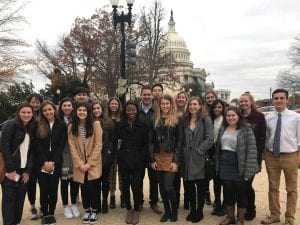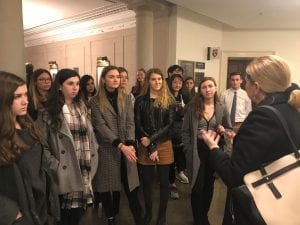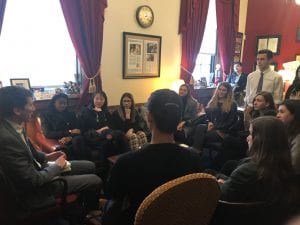Dr. Stephen Mitroff’s undergraduate course called “Science in the District” focuses on how cognitive psychology research plays a role in many real-world professions. Last semester FABBS (Federation of Associations in Behavioral & Brain Sciences) joined Dr. Mitroff and the students on several trips around DC and has produced a series of short videos that highlight how cognitive science can be used to benefit society. The 1st video, which focuses on aviation security, is out! You can see more details (and the video) here:
http://fabbs.org/public-interest/cognitive-psychology-in-the-real-world/





